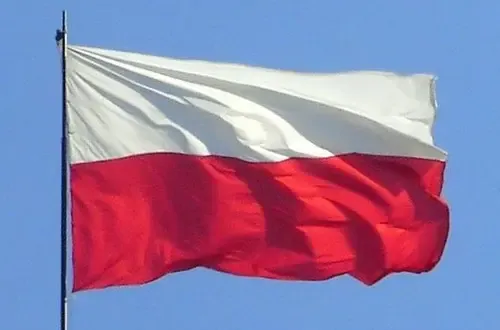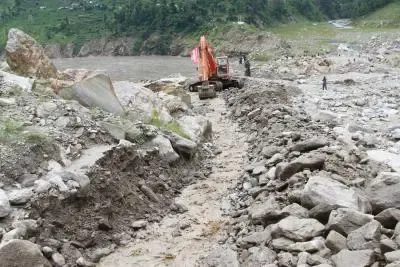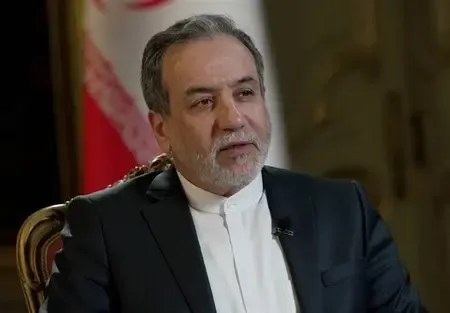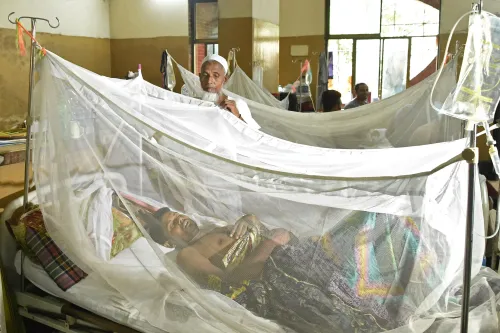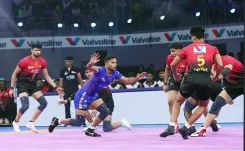Why is Macron Criticizing Israeli Airstrikes in Syria?
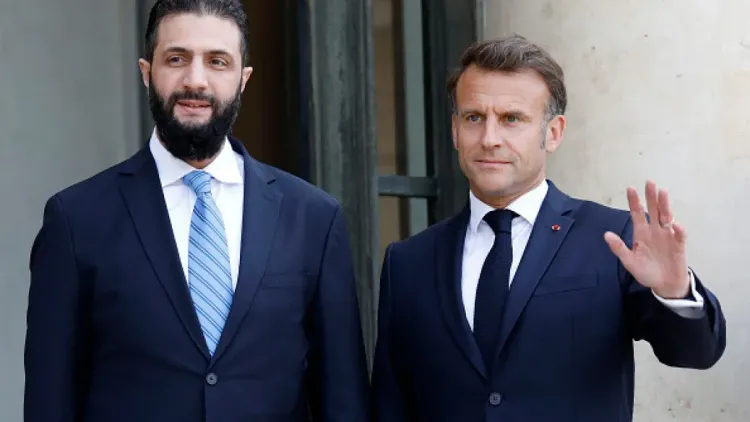
Synopsis
Key Takeaways
- Macron criticizes Israeli airstrikes as ineffective for long-term security.
- Calls for enhanced cooperation instead of military incursions.
- Escalating violence in Syria raises concerns.
- France seeks to expand its influence in the region.
- Sharaa's leadership is under scrutiny as violence persists.
Paris, May 8 (NationPress) French President Emmanuel Macron has openly criticized Israeli airstrikes in Syria, indicating that such actions do not ensure Israel's long-term safety.
These comments were made on Wednesday during a collaborative press conference with Syrian interim leader Ahmed al-Sharaa at the Elysee Palace in Paris.
"Regarding bombings and invasions, I believe this approach is misguided. You do not secure your nation by infringing upon the territorial rights of your neighbors," Macron stated.
"The appropriate strategy is to foster enhanced cooperation," he added.
Macron's statements came in the wake of a series of Israeli airstrikes early Friday that targeted a site near the official residence of the Syrian President in central Damascus.
Loud explosions reverberated throughout various regions of the capital.
Reports also indicated Israeli aircraft conducting reconnaissance flights over Damascus shortly after the assaults.
This attack coincided with a surge in violence in southern Syria, notably in regions with a Druze majority.
Recent clashes between Druze factions and government-aligned forces have resulted in over 100 fatalities, raising fears of further destabilization within the country.
Macron urged Sharaa to ensure that those responsible for the recent violence be held accountable and face prosecution.
The sectarian violence in March, which resulted in over 1,700 deaths—predominantly among Assad's Alawite minority—drew international condemnation and skepticism regarding Syria's future trajectory.
In addition, Israel has executed hundreds of strikes on Syrian territory since the overthrow of Assad, including one near the Presidential Palace in Damascus on Friday.
Sharaa mentioned that Syria is engaged in "indirect discussions through mediators" with Israel to ease tensions and "try to manage the situation to prevent it from spiraling out of control for both parties."
However, he refrained from providing further details or naming the mediators involved.
Macron also advocated for a gradual relaxation of European economic sanctions if the new Islamist authorities stabilize the nation.
He urged Washington to similarly refrain from withdrawing American troops from Syria for as long as feasible.
Sharaa contended that there is no justification for sustaining European sanctions, asserting they were imposed on the former regime due to its transgressions.
Sharaa previously led the Islamist group Hayat Tahrir al-Sham (HTS), which played a pivotal role in Assad's ousting after 14 years of civil conflict but had prior connections to Al-Qaeda.
He remains subject to a UN travel ban, and it is likely that France sought an exemption from the United Nations, similar to what occurred for his recent visits to Turkey and Saudi Arabia, according to a knowledgeable source.
France, having been a colonial power in Syria, is looking for opportunities to expand its influence in the region after years of Russian presence, with French businesses also pursuing contracts.
Recently, French logistics behemoth CMA CGM entered into a 30-year agreement to develop and manage the port of Latakia.
Macron emphasized that France will be closely monitoring Sharaa's progress.
"Mr. President, I am counting on you," Sharaa remarked.

